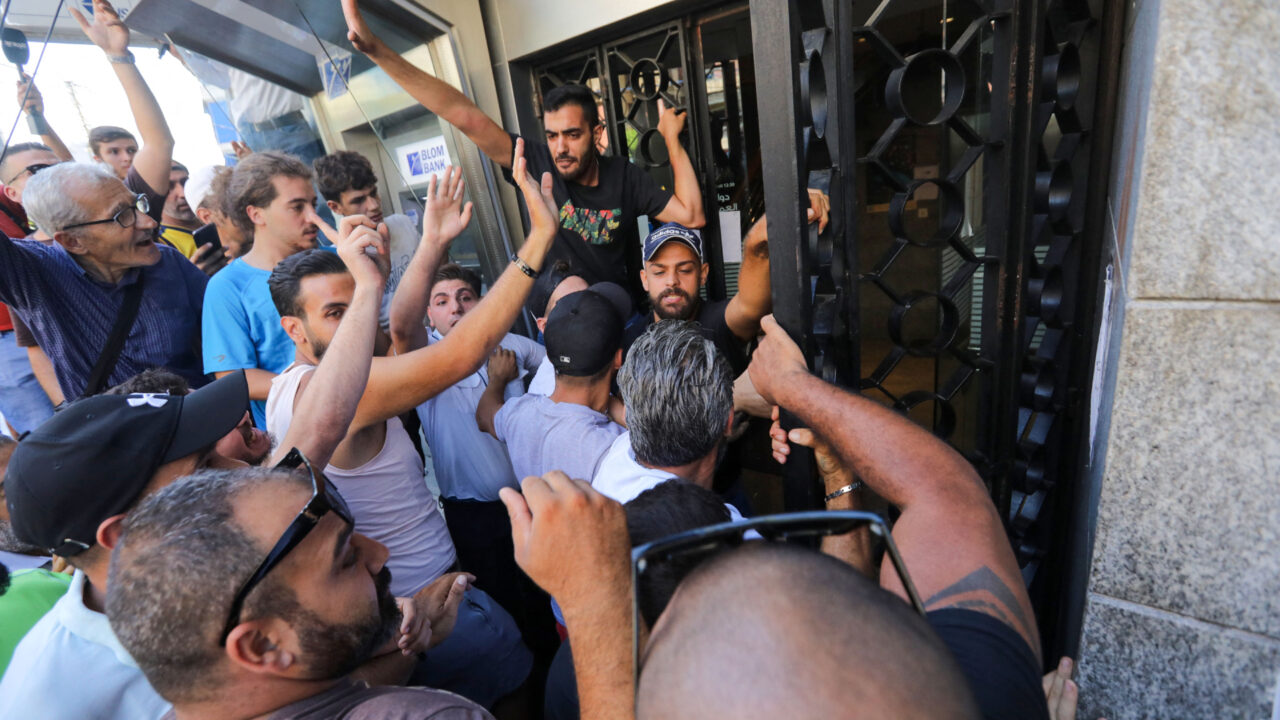Across Lebanon there is now a reasonable possibility of getting caught up in isolated incidents of violence and threatening behaviour at banks and other service points.
This assessment was issued to clients of Dragonfly’s Security Intelligence & Analysis Service (SIAS) on 16 September 2022.
This follows a series of events where people have forced bank staff to hand over their savings at gunpoint. There have been at least three such incidents in the last two days. The dire economic situation is almost certainly driving these desperate attempts to resolve personal financial issues.
Although there continues to be general public apathy about protesting to achieve change, there is also an emerging trend of more organised issue-specific activism. The recent incidents have been reportedly carried out in coordination with an anti-capital control activist group called the Depositors Outcry Association. Later in the day after one such bank raid, the group posted several videos on social media showing broken glass and a vandalised gate outside the home of the Blom Bank CEO. The group also announced plans for more bank robberies.
Lebanese rather than foreign banks are the most probable targets of such activism. The tight imposition of capital controls and deposit limits mean many ordinary people are unable to access their savings in full. Additional restrictions only allow people to withdraw them in the local currency at inflated prices, meaning many people have seen a marked devaluation of their savings. But various issue-specific activists have also targeted state institutions like the judiciary, parliament (and parliamentarians), and the central bank.
Heros and copycats
We warn that the relative success of recent incidents (particularly those carried out by individuals acting alone) means there is an increasing risk of copycat incidents in the coming weeks. Users on social media and even some traditional media outlets have reacted positively to the image of one woman wielding a gun at a bank on 14 September. The latest events have also shown that security forces seem reluctant to intervene, probably to avoid any escalations. The woman who acted on 14 September evaded arrest and later gave interviews. Some of her accomplices have since been detained.
Retail banks in Beirut and elsewhere are likely to be on high alert in the coming weeks. And we anticipate that many banks will increase security across their branches as a precaution. From our conversations with one local resident, we understand that heightened security at some branches in the Sin El Fil neighbourhood in Beirut is already visible, and there have been local press reports that others will close all together soon.
The actions recently would probably inspire people to take matters into their own hands in other aspects of life. This in turn points to a general worsening of law and order in the country. These events are symptomatic of wider grievances tied to the state’s absence in delivering key services. And we assess that this probably also extends to an increased use of violence to solve personal disputes and in other settings such as at hospitals and fuel stations.
Image: people gather outside the Blom Bank branch in the capital Beirut’s Tariq al-Jdideh neighbourhood on 16 September 2022; photo by IBRAHIM AMRO/AFP via Getty Images




